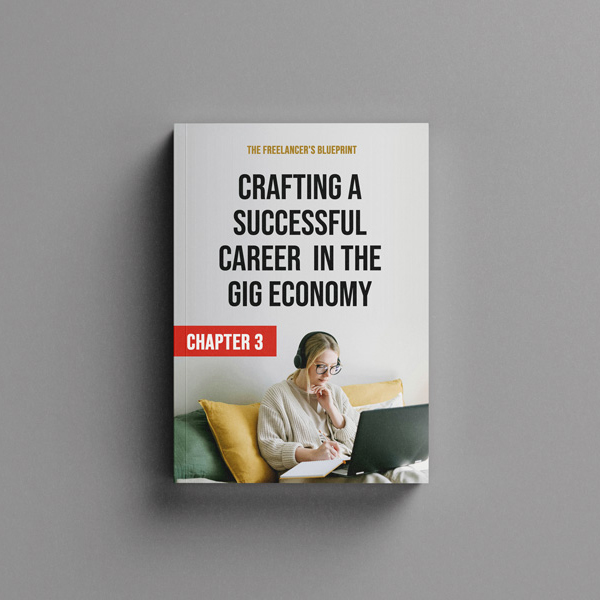
Crafting a unique value proposition is a vital step for professionals aiming to carve out a successful freelance career in the gig economy. This proposition defines what sets you apart from your competitors and highlights the specific benefits you offer to clients. To begin, think about your skills, experiences, and the unique perspective you bring to your work. Reflect on the problems you can solve and the value you create for your clients. This self-assessment will be the foundation for developing a compelling value proposition that resonates with your target audience.
Next, consider your ideal client. Who are they, and what challenges do they face? Understanding your audience is key to tailoring your value proposition effectively. Research their needs, preferences, and pain points to ensure that your message speaks directly to them. By aligning your skills with their requirements, you can clearly articulate how your services can address their specific challenges. This connection not only enhances your credibility but also makes it easier for potential clients to see the value in what you offer.
Once you have a clear understanding of your strengths and your ideal client, it’s time to craft a succinct and engaging statement that encapsulates your unique value proposition. Use clear and concise language that communicates your message effectively. Aim for a statement that not only highlights your skills but also conveys your passion and commitment to delivering results. A well-crafted value proposition should evoke emotion and inspire confidence, making it easier for clients to envision the benefits of working with you.
To further refine your value proposition, seek feedback from peers, mentors, or even potential clients. External perspectives can provide insights that you might not have considered and can help you identify areas for improvement. Don’t be afraid to iterate on your proposition based on this feedback. Remember, crafting a unique value proposition is not a one-time task but an evolving process that should grow with your freelance career. As you gain more experience and insights, your proposition will become more refined and impactful.
Finally, integrate your unique value proposition into all aspects of your freelance business. Use it in your marketing materials, on your website, and during client meetings. Consistency is key, as this will reinforce your brand and make it easier for clients to remember what makes you unique. As you embrace this journey, remember that your value proposition is a powerful tool to differentiate yourself in a competitive market. With dedication and clarity, you can establish a strong presence in the gig economy and attract clients who appreciate the unique value you bring to the table.
Creating an impressive portfolio is one of the most critical steps in establishing your freelance career. A well-crafted portfolio not only showcases your skills and creativity but also serves as a powerful tool to attract potential clients. Start by selecting your best work that aligns with the type of projects you want to pursue. Quality always trumps quantity, so focus on pieces that truly reflect your capabilities and uniqueness. Remember, your portfolio is a representation of your brand, and it should communicate your vision and the value you bring to the table.
As you compile your portfolio, consider the narrative you want to tell through your work. Each piece should not only highlight your technical skills but also demonstrate your problem-solving abilities and how you approach projects. Including case studies or brief descriptions can provide context, illustrating the challenges you faced and the solutions you implemented. This storytelling aspect can engage potential clients, allowing them to see how you think and work rather than just the final product.
In today’s digital age, the format of your portfolio is just as important as its content. A visually appealing and user-friendly online portfolio can leave a lasting impression. Use a clean design, intuitive navigation, and high-quality images to showcase your work. Ensure that your website is mobile-friendly, as many clients may view your portfolio on their devices. Consider incorporating interactive elements or video presentations to make your portfolio more engaging. The goal is to create an experience that not only highlights your skills but also makes it easy for clients to understand your offerings.
Don’t forget the importance of testimonials and recommendations in your portfolio. Positive feedback from previous clients can significantly enhance your credibility and attract new business. Reach out to your past clients and ask for a brief testimonial that speaks to your skills, professionalism, and the impact of your work. Including these endorsements in your portfolio can provide social proof, reassuring potential clients that you deliver quality work consistently.
Lastly, keep your portfolio dynamic. As you grow and develop your skills, it’s essential to update your portfolio regularly. Remove outdated work that no longer represents your abilities and replace it with new projects that showcase your current skills and styles. A fresh portfolio reflects your commitment to growth and improvement, which is an attractive quality in a freelancer. By continually refining and enhancing your portfolio, you position yourself as a competitive professional in the gig economy,
ready to seize new opportunities and challenges.

In today’s digital age, establishing a robust online presence is crucial for freelancers aiming to carve out a successful career in the gig economy. Your online presence is essentially your professional identity in cyberspace, a representation of your skills, experiences, and unique offerings. It is the first impression many potential clients will have of you, so investing time and effort into crafting a compelling online image can set you apart from the competition. Start by creating a professional website that showcases your portfolio, testimonials, and services. This can serve as your central hub, where potential clients can learn about you and your work.
Social media platforms are invaluable tools for freelancers looking to enhance their online visibility. By choosing the right platforms that align with your niche, you can engage with your target audience effectively. For instance, LinkedIn is excellent for connecting with other professionals, while platforms like Instagram or Pinterest can be powerful for those in creative fields. Regularly sharing valuable content, insights, and updates about your work can help you build a community around your brand. Remember, consistency is key; frequent interaction and engagement can foster relationships that may lead to future collaborations or referrals.
In addition to social media, consider joining online freelance marketplaces and professional networks. These platforms not only provide opportunities for finding gigs but also allow you to connect with other freelancers and clients. Building a profile on these sites with a detailed description of your services, skills, and previous work can significantly increase your chances of being noticed. Don’t hesitate to request reviews and endorsements from previous clients, as positive feedback can enhance your credibility and attract more business.
Content marketing is another effective way to position yourself as an expert in your field and attract potential clients. By blogging about industry trends, sharing case studies, or providing helpful tips related to your services, you can demonstrate your expertise and provide value to your audience. This not only helps in building trust with potential clients but also improves your search engine visibility, making it easier for people to find you online. Consider creating a content calendar to regularly publish fresh content, keeping your audience engaged and informed.
Lastly, never underestimate the power of networking online. Engaging with other professionals, joining relevant groups, and participating in discussions can open doors to new opportunities. Attend virtual events, webinars, and workshops in your niche to connect with like-minded individuals and potential clients. Building relationships in the digital space can lead to collaborations and referrals that may not have been possible otherwise. Remember, developing your online presence is an ongoing journey, and with persistence and dedication, you will cultivate a strong digital footprint that reflects your professional brand and attracts the success you seek.
This month, we're offering a free upgrade so you can start working immediately. The package, valued at $59, includes credits to help you start selling your services and post projects. Whether you're just starting as a freelancer or looking for someone to assist with a task, MonstaWork has got you covered.
Monstawork is a service marketplace which offer collaboration with professionals and experts to deliver the job.
Our complete solution offers all the tools needed for both Freelancer and Employer to collaborate and communicate.
Freelancer works on projects which offer by Employer. Freelancer also offer services which can be purchased by Employer.
Employer offer projects which Freelancer chooses to work on. Employer can purchase services offer by Freelancer.
Project is a term used to describe a work offered by Employer who seeks help on certain tasks. Freelancer can communicate with Employer to offer his/her skill to work on the project.
Service is a task offered by Freelancer based on their skillset. Employer can choose the service if its meet his/her requirements for the task to be done.